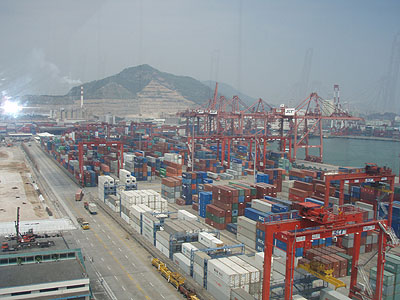 On top of the jaw-dropping news that land values in Beijing have increased 800% over the past seven years, Gideon Rachman and others note that China is also losing some of its best friends: multinational CEOs, who have been a bulwark against China alarmism but are now growing tired of China’s increasingly protectionist and nationalistic business policies. Rachman thinks that even taking account of its recent miscues China is still playing a pretty smart hand, but Dan Drezner disagrees:
On top of the jaw-dropping news that land values in Beijing have increased 800% over the past seven years, Gideon Rachman and others note that China is also losing some of its best friends: multinational CEOs, who have been a bulwark against China alarmism but are now growing tired of China’s increasingly protectionist and nationalistic business policies. Rachman thinks that even taking account of its recent miscues China is still playing a pretty smart hand, but Dan Drezner disagrees:
And here I must dissent from Rachman. In some ways, I do think the Chinese government has been pretty stupid over the past year in executing its “Pissing Off As Many Countries As Possible” strategy. China rankled the Europeans over its climate change diplomacy at Copenhagen. For all of Beijing’s bluster, it failed to alter U.S. policies on Tibet and Taiwan. It backed down on the Google controversy. It overestimated the power that comes with holding U.S. debt. It alienated South Korea and Japan over its handling of the Cheonan incident, leading to joint naval exercises with the United States — exactly what China didn’t want. It’s growing more isolated within the G-20. And, increasingly, no one trusts its economic data.
This doesn’t sound like a government that has executed a brilliant grand strategy. It sounds like a country that’s benefiting from important structural trends, while frittering away its geopolitical advantages. Alienating key supporters in the country’s primary export markets — and even if Chinese consumption is rising, exports still matter an awful lot to the Chinese economy — seems counterproductive to China’s long-term strategic and economic interests.
In the long term, yes, most of these are just nits that will soon be forgotten. Still, they add up, and China is entering a phase in which growth is almost certainly going to be harder to come by than it has been for the past three decades. My guess is that they know this and don’t really know what to do about it. I expect more in the way of stormy seas ahead.

















